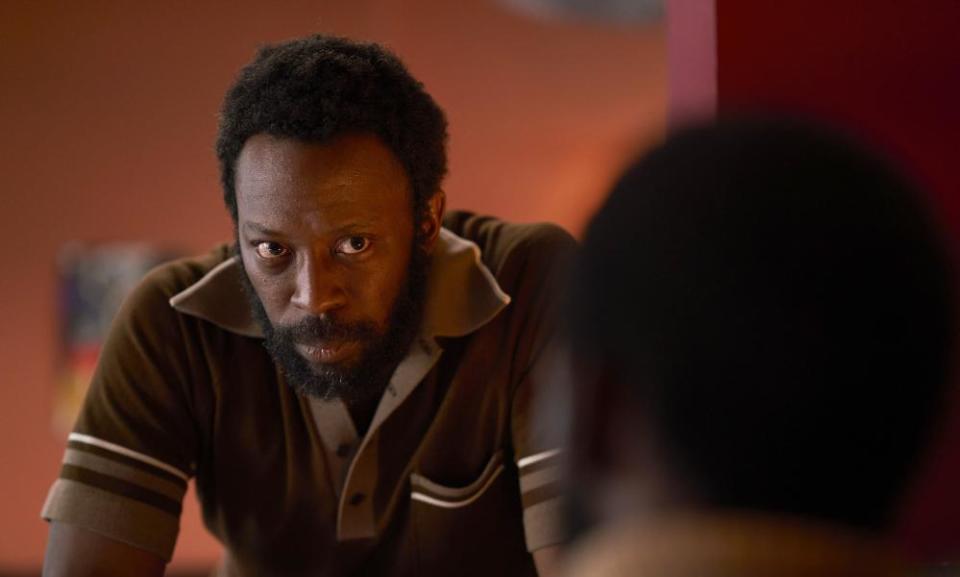'Racism's still around': Notting Hill 50 years on from Mangrove

In the last scene of Mangrove, the first instalment of Steve McQueens critically acclaimed series Small Axe, the focal character Frank Crichlow is smoking outside his restaurant.
It’s a cold night and Crichlow, played by Shaun Parkes, looks weighed down by the landmark trial he and eight others had just won.
His friendDalston “Dol” Isaacs tells him: “We might have won the battle Frank, but we’ll see about the war.”
Isaacs complains he can’t cope with another winter in the UK and wants to go home, to which Crichlow replies: “This we home, Dol. The Mangrove.”
Though Isaacs, who is played by Gary Beadle, was speaking of the cold, the scene points to something much deeper – and raises questions about how much has actually changed since then.
The hostile environment that London’s black community faced in the 70s and 80s, from racist policing to institutions indifferent to discrimination, made Isaacs and his community question whether they would ever feel at home in Britain.
It’s a question faced today by the Windrush generation – which is one powerful reason why the series has resonated so deeply with Britain’s black community.
For the real Isaacs, who still calls Notting Hill home, he is pleased to see that resistance of the Windrush generation is alive today through this summer’s Black Lives Matter protests.
“I think it’s a great movement,” the 89-year-old said. While the police raids that were accurately depicted in the series are less common in the area, he said, “racism is still around. It’s not as bad as it was then, but it’s still around … It’s kind of more concealed.”
This area of west London has seen a staggering amount of change over the past five decades. House prices have shot up and are now some of the most expensive in the country, forcing out many people in the West Indian community.
Yvette Williams, one of the organisers of the Justice4Grenfell campaign group, who first got involved with the Mangroves in the late 1980s, and supported people with their housing and immigration problems, said: “If you go on the All Saints Road now, it’s been gentrified so its posh businesses and a little village. When I was there, it was an active frontline.”
She added that when it comes to racism and inequality, little has changed in the area. “We’ve seen that culminate with Grenfell.”
In the second episode of the series, Lovers Rock, set at a blues party in 1980, there is a glimpse of man carrying a large cross across town. Notting Hill’s only Caribbean councillor, Portia Thaxter, who grew up in the area, said: “I remember him as a child growing up, he used to always be walking across Shepherds Bush, Ladbroke Grove; everywhere you see him, he carried the cross on his shoulder. He died a couple of years back, but he never had any support. If you look at his accommodation, he was very meagre, poor.”
For Thaxter, he represents the burden the community has been forced to carry alone. She is calling for a new Caribbean social centre to help provide people with training, display local art and culture, and showcase the black communities’ historical contribution to the area.
While new money has poured into the area,the business and community centres have disappeared because of lack of support.
The new social centre, she says, would be a place for the community to be able to socialise and feel like they belong.
The lack of those spaces is what makes the annual carnival celebrations so important, the festival’s executive director Matthew Phillip said.
“The struggles that were carried on with the community, particularly the black community, said, ‘we have a right to be here and we deserve to be here’. People taking over the streets for two days of the year is a continuation of that kind of resistance.”
He points to the deportation flight scheduled for Jamaica next week, despite the damning ruling that the Home Office broke equalities law with hostile environment measures, as further proof of entrenched racism.
The only place that does exist for the community in the area is The Pepper Pot Centre, which was founded in 1981 by Pansy Jeffrey to combat discrimination and loneliness among the growing generation of Caribbean older people, although the building in Ladbroke Grove is also used by other communities.
Howard Jeffrey, the son of the founder and current chairman of the centre, who knew many depicted in the series, said: “When I was a kid, I watched history being made in my front room”.
His mum, who was a community activist and social worker, was appointed by Kensington Citizens Advice to try and improve race relations in the area after the Notting Hill race riots of 1958. The Black Lives Matter movement have propelled those issues to the forefront, he said.
The biggest issue now for the Windrush generation is combating isolation, particularly during the pandemic. While the centre, which has had to remain closed to people during lockdown, has been working to provide devices to their members, they desperately need data so people can take part in zoom activities so people feel connected.
As for Isaacs, who has been shielding in his flat for much of the year, he was happy with the episode’s depiction of him and his friends, except for one thing.
“They made Frank smoke too much, he didn’t smoke that much cigarettes. Everything else was true to form.”

 Yahoo Finance
Yahoo Finance 